Hong Kong software engineer Alfred Hung Cheuk-yiu was sipping a glass of wine at a half-empty bar in Tsim Sha Tsui on a Saturday night, waiting for a woman he met on a dating app.
They had been chatting online for four months but were meeting in person for the first time.
“I no longer make new friends randomly in bars,” said Hung, 35, describing how his dating habits changed over the three years of the Covid-19 pandemic. “I used to pay at least HK$600 [US$77] a night for drinks for myself and the ladies I met. Now, I make friends on the dating app first, before choosing my date and going out for drinks with her.”
Do you have questions about the biggest topics and trends from around the world? Get the answers with SCMP Knowledge, our new platform of curated content with explainers, FAQs, analyses and infographics brought to you by our award-winning team.
That night, drinks for two cost him less than HK$200.
Wondering what to do after dark? The Post unpacks ‘Night Vibes Hong Kong’
Like him, many Hongkongers are spending less at bars and pubs, and business owners are worried.
Strict Covid-19 restrictions meant that bars and nightclubs did not reopen, albeit with conditions, until May last year. Total receipts in the first half of this year hit HK$694 million, almost a fifth less than over the same period in 2019 before the pandemic hit.
Total receipts for the restaurant sector from April to June reached HK$27.4 billion, almost 25 per cent more than in the same quarter last year, according to official data.
Industry leaders who noted that residents had changed their weekend entertainment preferences also said the nightlife scene had stagnated and the city had failed to stimulate spending by visitors.
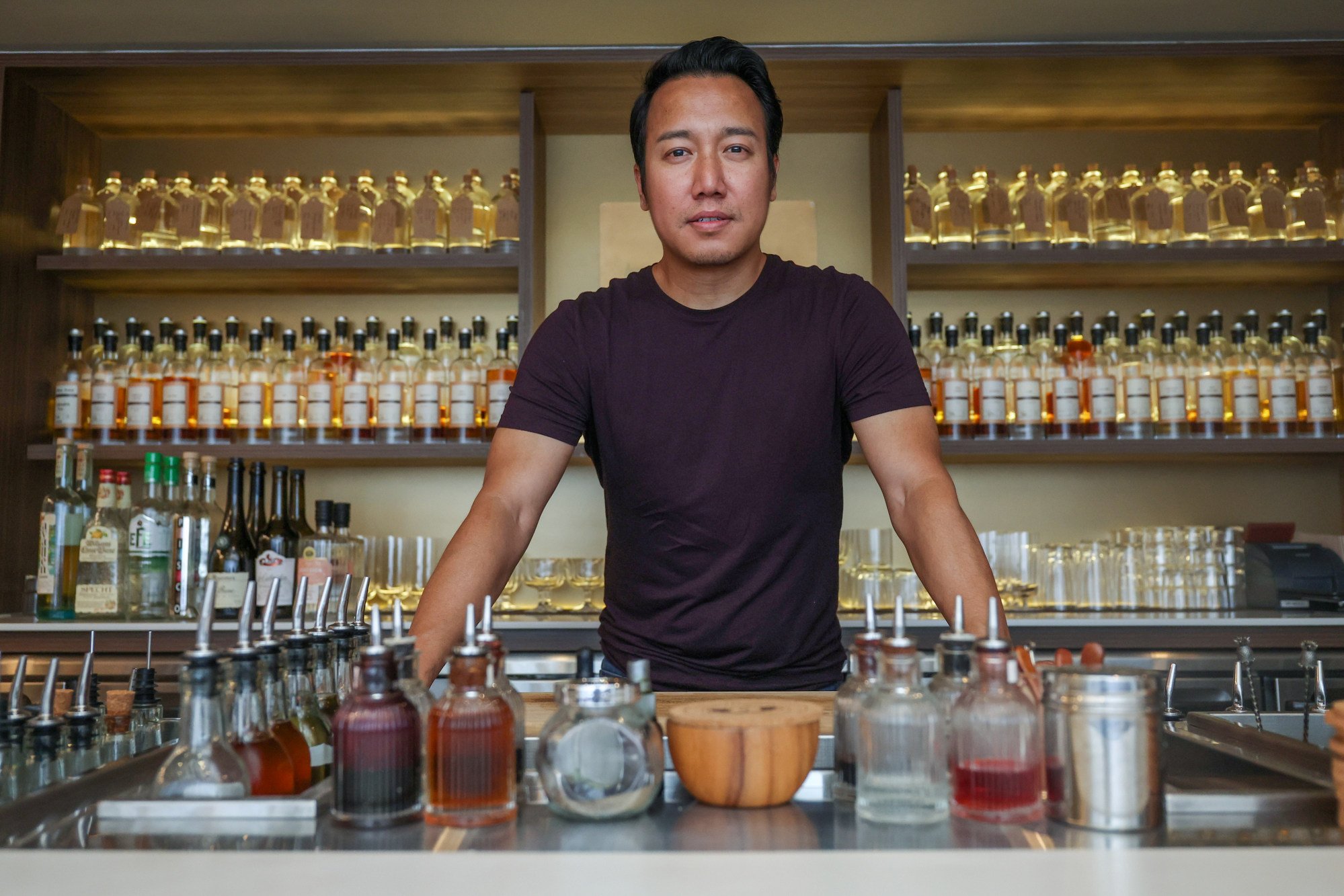
The government responded with the “Night Vibes Hong Kong” campaign beginning in September, with evening bazaars, extended shopping hours and discounts at more than 100 dining and bar establishments.
Chin Chun-wing, chairman of the Hong Kong Bar and Club Association, said the city’s 1,300 bars remained at about the 2019 level, but business hovered at only 60 to 70 per cent of what it was before the pandemic.
“Spending power is obviously weaker these days,” he said.
Weekend patrons at Tsim Sha Tsui bars were spending only about HK$500 per person compared with about HK$800 in 2019 when they used to order more drinks, he added.
Despite a 90 per cent recovery in the bar business during last month’s Halloween weekend compared with the same period in 2018, largely due to residents enthusiastically embracing the event, patronage and spending quickly returned to normal, quieter levels, Chin said.
A key issue, he said, was that more Hongkongers were taking off to spend their weekends across the border in Shenzhen, where they could stretch their dollar further on a night out.
“Many now travel to mainland China right after work on Friday, resulting in reduced spending in Hong Kong on Saturday,” Chin said.
Immigration figures showed 862,772 people left the city over the weekend of November 3 and 4, including 630,377 residents. Most locals went across via land checkpoints.
Hong Kong’s night scene: what will it take to get it alive and kicking again?
Too quiet for a Saturday night
At 10pm on a recent Saturday at Knutsford Terrace, a well-known strip of bars, pubs and restaurants in Tsim Sha Tsui, most of the streetside bars were not full and some were half empty.
Waiters stood on the street to lure patrons with special offers. Most of the bars offered a HK$438 package of two drinks, two shots and a shisha session, smoking flavoured tobacco.
Seated outside the Jubilee bar with three friends, events manager Eli Chiu Ka-long, 28, said she spent about HK$1,600 that evening on drinks, dinner and shisha.
It was the first time in four months that she had gone to a bar with friends.
“We got used to house parties during the pandemic,” she said.
Even after restrictions on bars were lifted, her friends preferred booking private party rooms on the weekend, because they cost less and offered a choice of entertainment.
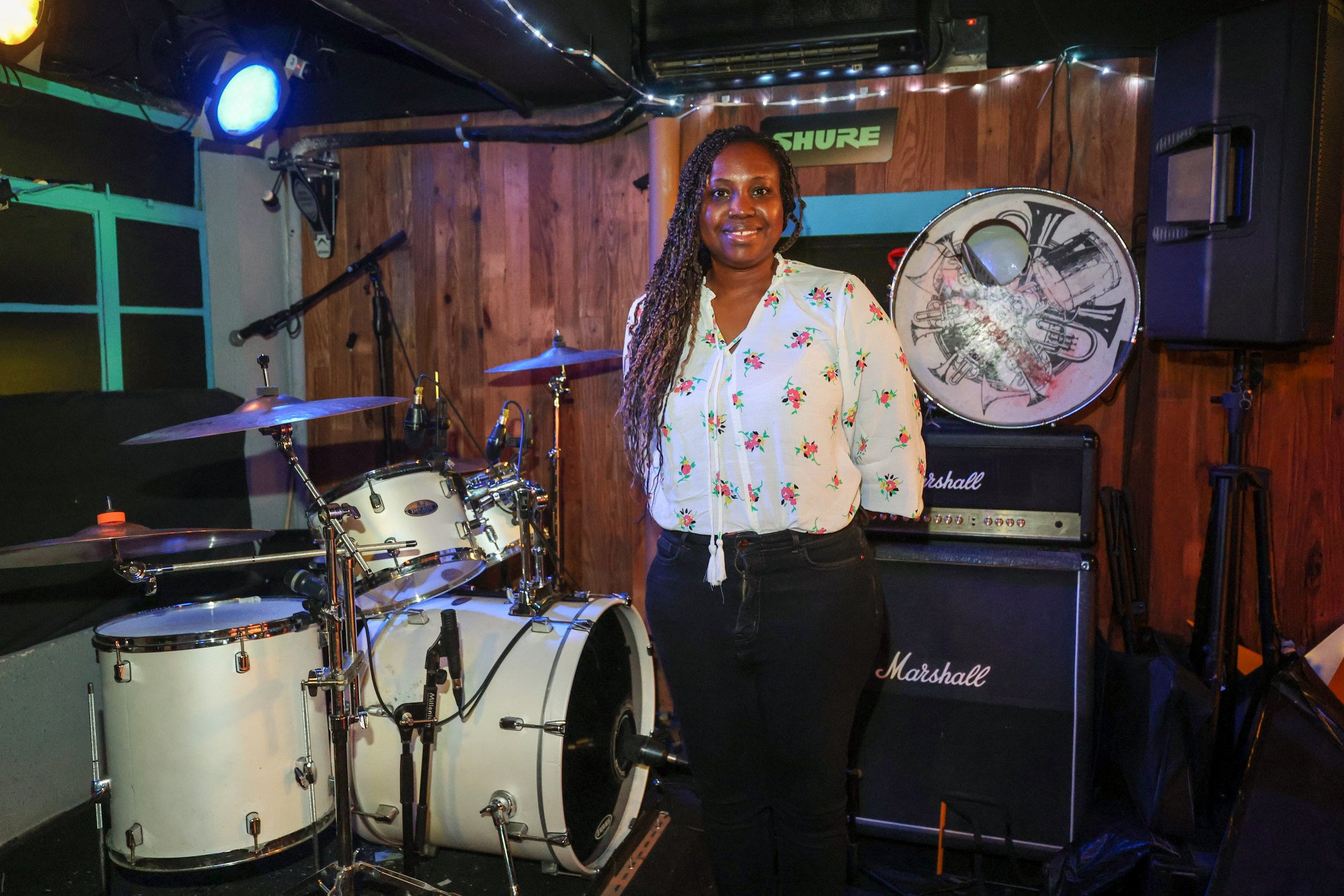
“We can do other things that the bars don’t offer, such as play board games or mahjong,” she said. “It is also less noisy if we want to chat about serious subjects or talk about men.”
At the nearby ShowTime Sports Bar, manager Michael Yeung Ho said the number of patrons was less than 70 per cent of the pre-pandemic level.
Occupying the third and fourth floors of a building, the bar already had beer pong, darts and pool. To draw more customers, Yeung added live band performances and recently introduced a free flow of drinks at HK$350 for three hours on weekdays.
“Many familiar faces haven’t returned,” he said. “It’s like a whole group of people in Hong Kong have suddenly disappeared.”
The city has experienced a wave of emigration and a chronic brain drain after the social unrest of 2019, the political changes after that and three years of harsh pandemic rules.
Between 2019 and last year, the city lost 210,000 workers. After three years of population decline, Hong Kong has begun seeing an inflow of people responding to various government talent schemes.
Retailers say foot traffic up as ‘Night Vibes Hong Kong’ campaign gathers pace
Has Hong Kong ‘lost its spark’?
Along Lockhart Road in Wan Chai, once a throbbing nightlife spot on Hong Kong Island, a few bars were packed with rugby players fresh from their Saturday matches.
Recent graduate Desmond Choi, 23, who plays for the Hong Kong Typhoons rugby club, said he preferred going out in Tsim Sha Tsui, “but after rugby games it can only be Wan Chai”.
The reason? Many of the bars in the area sponsored rugby teams and players enjoyed discounts on drinks.
But for other patrons, the scene paled in comparison to their memory of the place.
Briton Cathy Lewis*, 29, said she and her friends used to look forward to “ladies night” specials and other fun offerings before the pandemic.
Born and raised in Hong Kong and working in publishing, she said the post-2019 political changes and three years of pandemic restrictions had driven away many of the expats who once thronged the area and those still in the city preferred to save their money for trips abroad.
“Hong Kong has lost its spark,” she said. “With the current climate politically, I don’t think we are going to get back to what it was before.”
At the Aftermath Bar, an arts and cultural venue at Wyndham Street in Central, owner Alicia Beale said she was missing the people who would “go for a night out to celebrate birthdays, just hang out with friends and catch up”.
“While we do have a very solid, strong core group of regulars who come and support us to really survive, we really need a wider audience and more customers,” she said.
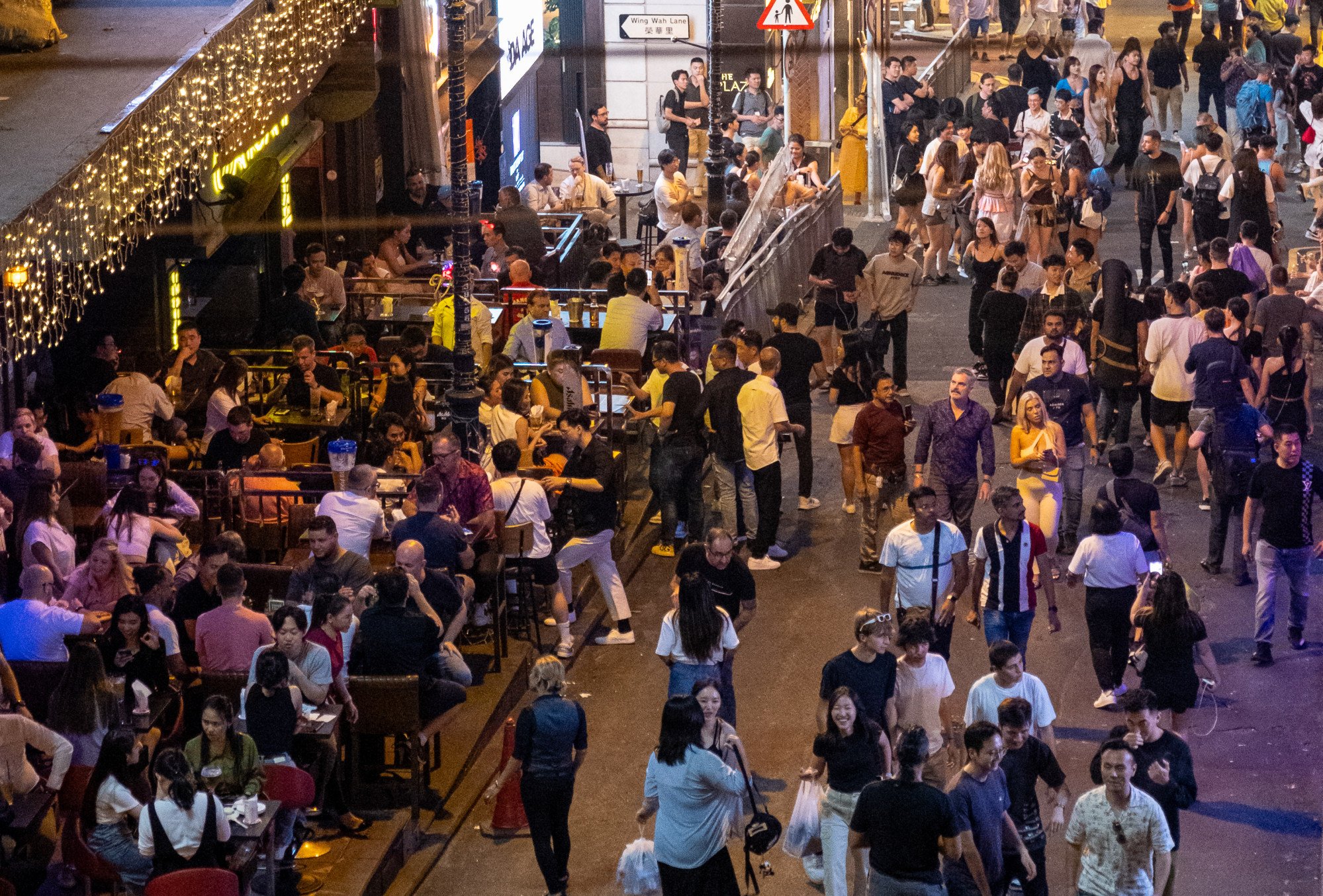
To revitalise business, the bar has tried to add more events to its regular line-up of live music and comedy shows. In November, it will host a two-night live music tribute to the late singer-songwriter Tina Turner, who died earlier this year.
“We’re trying to create these kinds of special moments to excite people to come out of their homes and come to us as a destination,” Beale said.
Rising rents an issue for some
Noel Smyth, managing director of Delaney’s, an Irish pub chain with three outlets in Tsim Sha Tsui and Pok Fu Lam, said rent hikes had become an issue too.
In April, he closed his Wan Chai outlet after the landlord wanted to raise the rent.
That basement outlet opened in 2019 at the Wharney Hotel on Lockhart Road, and survived the challenges of recent years thanks to its “loyal following” and a 10 per cent discount on rent during the pandemic.
During the health crisis, many landlords gave tenants steep discounts on rents and at one point, the government even forbade them from chasing after tenants who fell behind on payments. But since the city’s reopening, many landlords have raised their rents.
“We couldn’t come to an agreement on a new lease, unfortunately,” Smyth said. “They wanted to start it back at the full rental.”
Alex Pun, founder of Orchard, a fruit spirit cocktail bar in SoHo and a 16-year veteran of the Central nightlife scene, said he noticed that customers had become more conscious of spending and their health.
“A lot of my guests are getting into exercise, training at the gym and hiking,” he said. “They are more health conscious so they don’t drink as much as they used to, ordering just one or two drinks a night.”
He noticed that the city was attracting more mainland tourists, but said that did not benefit every bar.
Many of these visitors referred to recommendations on the mainland social media platform Xiaohongshu, which is similar to Instagram.
“People are looking for niche places with good quality drinks and food and avoid going to random bars,” he said. “They follow suggestions on social media to find the top bars listed in Hong Kong or in Asia.”
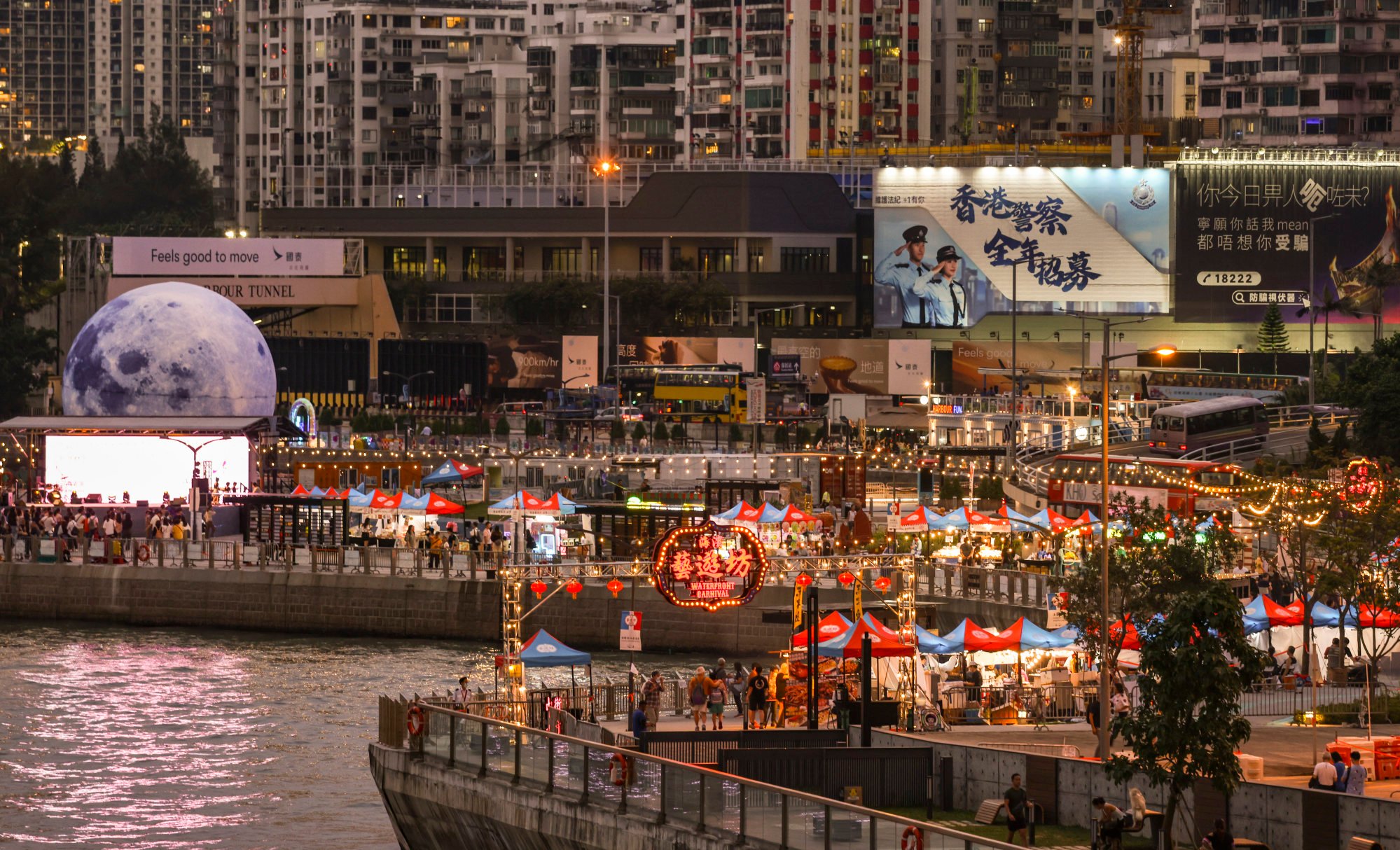
‘The scene must keep changing’
Around 11pm on a recent Saturday, the Lan Kwai Fong entertainment district in Central was unlike the other nightlife areas. The place was throbbing.
D’Aguilar Street was packed with hundreds of revellers as the district kicked off its “Cirque du Freak” Halloween event.
Across from California Tower, bars drew a steady stream of patrons and security guards were seen preventing partygoers from queuing outside.
Tycoon Allan Zeman, chairman of the Lan Kwai Fong Group, the biggest landlord in the area, said some bars and clubs there were enjoying as much as a fifth more business than in 2018.
Some outlets were raking in up to HK$500,000 in nightly receipts.
“I can’t complain,” he said. “The bars are busy and the numbers are very, very good every day.”
Zeman said the area owed much of its success to mainland tourists, who made up more than a third of patrons at a time when there were fewer Westerners in the city.
“The customer demographics have really changed,” he said.
Famous Hong Kong night market reopening ‘could be delayed until late November’
Zeman said Lan Kwai Fong was able to draw the crowds because it was constantly changing to keep the brand strong.
“If the places don’t do well, we change them and bring in new operators,” he said.
Other nightlife areas like Tsim Sha Tsui were not doing as well because they depended more on locals, who were now going to Shenzhen to unwind.
“I can’t blame them because it’s cheaper,” Zeman said, adding that nightlife operators had to keep upgrading their outlets and keep things exciting to attract customers.
He said Hong Kong’s nightlife scene suffered from the dearth of high-profile shows, the lack of venues for such events and the city’s inability to get residents to leave home or attract tourists.
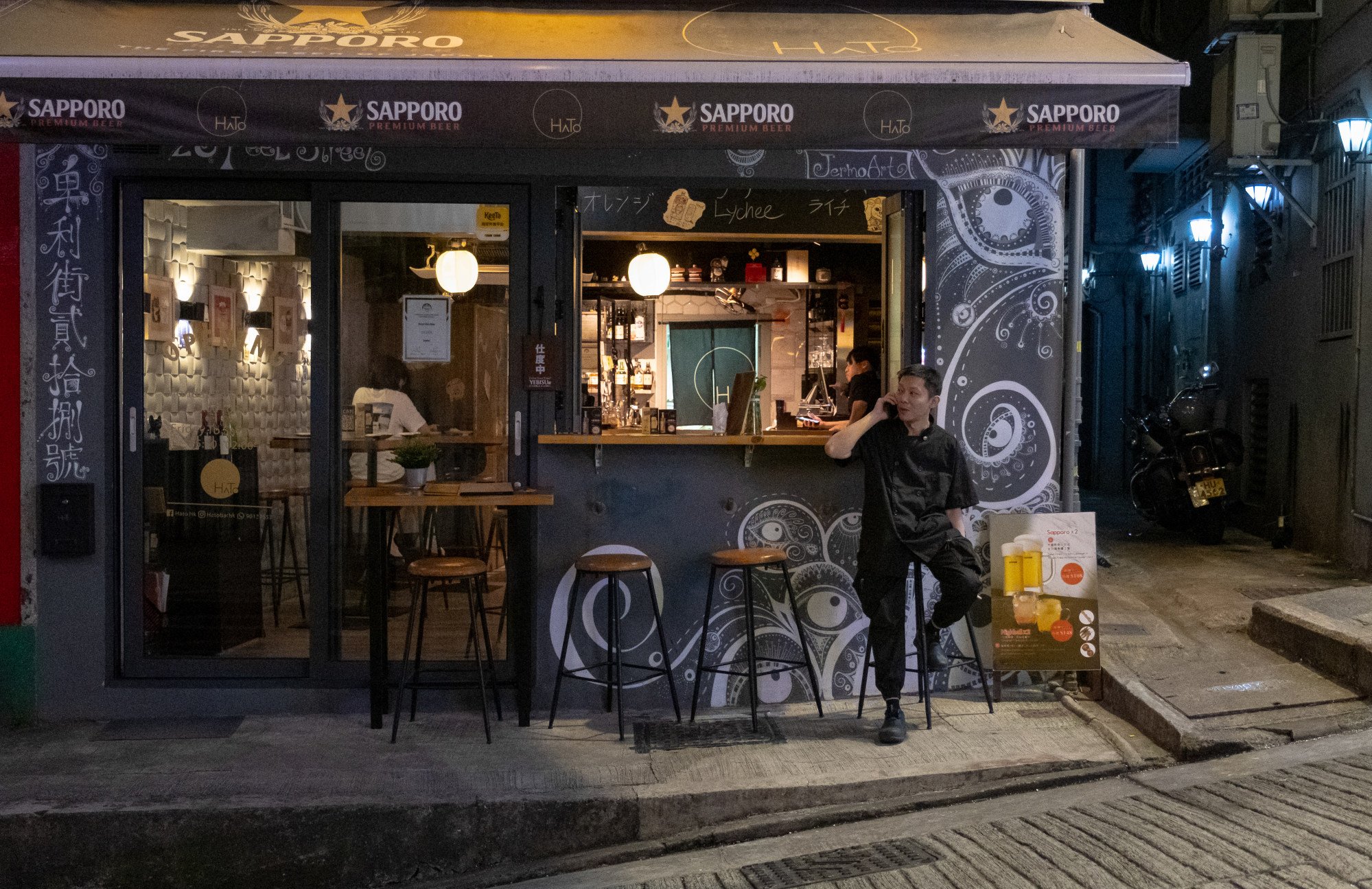
He pointed to superstar Taylor Swift taking her record-breaking Eras tour to Singapore, but not Hong Kong. Acts such as Coldplay and The 1975 also skipped the city on recent world tours.
“Unfortunately for Hong Kong, we’re not really on the route map for promoters at the moment,” Zeman said.
But others questioned whether merely attracting overseas talent or adding more nighttime offerings would be enough to revitalise the nightlife scene.
“More night events can help, but they need to be attractive enough to go against the current,” said Gary Ng Cheuk-yan, a senior economist for Asia-Pacific at Natixis Corporate and Investment Bank.
He said three years of the pandemic had “frozen” Hong Kong’s nightlife development, and the government faced a big challenge trying to change consumer behaviour at a time of heightened living costs and high interest rates.
“There is no strong reason for local residents to stay out late and spend,” he said.
*Name changed at interviewee’s request.
More from South China Morning Post:
- Hong Kong’s night scene: a tour of city’s evening hotspots reveals what’s hot and what’s not as consumers weigh in on what will get it alive and kicking again
- ‘Night Vibes Hong Kong’: Wan Chai waterfront carnival draws crowds, but lack of English signs leave some hungry tourists guessing
- Wondering what to do after dark? The Post unpacks ‘Night Vibes Hong Kong’
For the latest news from the South China Morning Post download our mobile app. Copyright 2023.





